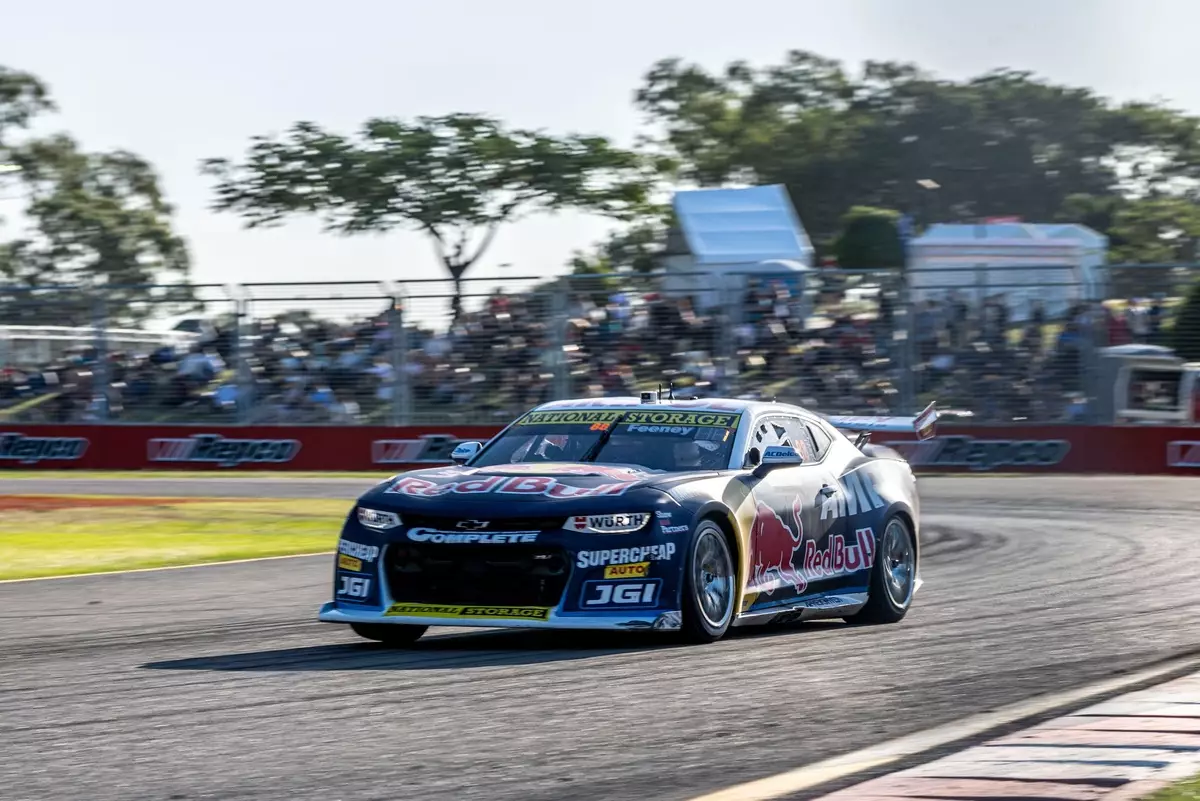The final showdown at Townsville’s Reid Park street circuit was nothing short of a masterclass in racing endurance, strategy, and mental fortitude. Triple Eight’s Broc Feeney delivered a commanding performance, not just through speed but through strategic patience and adaptability. From pole position, Feeney showcased a blend of aggressive lap timing and tire management that set the tone early. Yet, beneath this veneer of dominance was a complex chess match between rival teams employing daring tactics that could have turned the race in any direction. The event was a vivid illustration of how modern Supercars demand not just raw speed but the precision of strategic execution under pressure.
Strategic Gambles and Their Unexpected Outcomes
The race was punctuated by bold decisions, notably Cam Waters’ daring undercut. Tickford Racing’s gamble to pit early—on lap 15—reverberated through the outcome, catapulting Waters into a temporarily commanding position. This move exemplifies the kind of daring that defines high-stakes motorsport: betting on tire degradation, track conditions, and opponent behavior to gain an advantage. However, such gambles are inherently risky; Waters’ subsequent performance revealed the limits of this approach when his pace could not keep up after the second stint, resulting in a loss of momentum and second place to Will Brown. This underscores a vital lesson in racing: strategic risks can yield short-term gains but may be undermined if execution falters or conditions shift unexpectedly.
The Resilience of Fellow Competitors
While Feeney’s victory was driven by consistency and smart management, Will Brown’s performance was equally compelling. Beginning the race with a challenging starting position, Brown’s resilience and improved pace through the event allowed him to claw his way from lower grid spots to a well-earned second. His acknowledgment of difficulty at the start contrasts sharply with his perseverance, highlighting an often-overlooked trait necessary for success: mental toughness. Brown’s emergence underscores that in motorsport, perseverance and the ability to adapt are often just as critical as outright speed.
The Shifting Dynamics and Second-Order Victories
Chaz Mostert’s late surge to overtaking Waters also demonstrates how race momentum can quickly change with strategic and driving decisions. A mid-race slow-down from Waters, after his initial undercut, allowed Mostert to clinch third, and the later pitstop challenges further reshaped the podium positions. These moments reveal how marginal gains and setbacks, combined with pitstop efficiency, impact the final standings more than raw lap times alone. The race becomes a showcase of resilience, as teams and drivers must continually adjust to the evolving tapestry of on-track fortunes.
The Broader Significance: A Championship Reinvented
In the context of the championship, Feeney’s victory amplifies his dominance, extending his lead in the series standings. His two wins over the weekend have solidified his position as a formidable contender, demonstrating not just skill but the ability to sustain performance across different circuits and strategic scenarios. The points differential widens, signaling a new chapter where consistency and strategic precision may outweigh fleeting speed. Yet, this also raises questions about the nature of competition: is this era characterized more by calculated strategy or by raw driving prowess? Feeney’s recent form seems to suggest that in contemporary Supercars racing, resilience and tactical intelligence are paramount.
The Future of Supercars: Demanding More Than Ever
With the season progressing towards Queensland Raceway, the evolving dynamics of the championship hint at an intensifying battle between raw talent and strategic mastery. The continuous development of tools like the new fuel churn system and refined pitstop procedures indicates that teams are increasingly relying on technological innovation to gain an edge. However, the ultimate success still hinges on human factors—driver resilience, adaptability, and psychological toughness. As drivers like Feeney and Brown demonstrate, it’s not just about who is fastest in a straight line, but who can navigate the ever-changing landscape of a modern race with unwavering focus and strategic agility.
This season’s races have already rewritten the narrative of what it means to be a champion in the Supercars series. Speed alone no longer guarantees victory; it is strategic brilliance, mental resilience, and the courage to take risks—and, crucially, to recover from setbacks—that determine who truly dominates. As the championship unfolds, one thing remains clear: in racing, as in many facets of high-stakes competition, the greatest victories come to those willing to adapt, endure, and think one step ahead.

